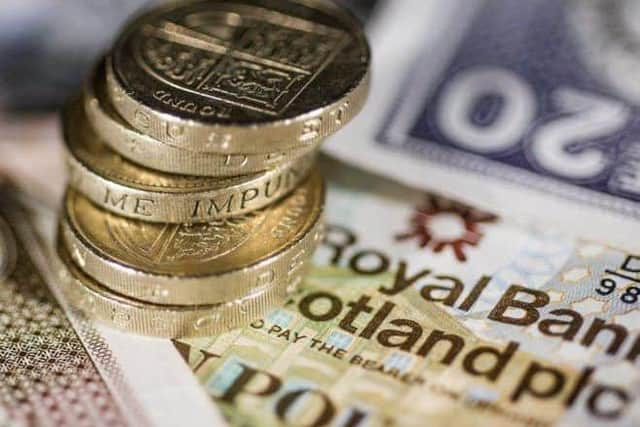Financial markets crisis: Scotland likely to be entering a recession, experts warn
The Fraser of Allander Institute (FAI) at the University of Strathclyde said Scotland’s economy is likely to contract in the second half of 2022.
Its forecasts assume the final two quarters of the year, and the first quarter of 2023, will show contractions due to wider economic challenges.


Advertisement
Hide AdAdvertisement
Hide AdThis means Scotland is likely to be entering into a recession, it said – defined as two quarters of negative growth.
The economists are forecasting growth of 3.6 per cent in 2022, followed by a contraction of -0.6 per cent in 2023, before returning to growth in 2024 of 0.8 per cent.
This is a significant revision down from the FAI’s previous set of forecasts in June.
Professor Mairi Spowage, director of the FAI, said: “The data we analyse in the commentary today points to weakening demand in the economy as inflationary pressures pervade every aspect of our lives.
“Consumer confidence is starting to weaken with attitudes on the outlook looking pessimistic. This has led us to reduce our forecasts for 2023 and 2024.
"Our assumption is that there will likely be contractions in the economy during the second half of 2022 and into 2023 given wider economic conditions.
“In practice, this means Scotland is likely to enter a recession.”
It came as Deputy First Minister John Swinney warned more cuts may have to be made in Scotland due to the "colossal" pressure on public finances.
Advertisement
Hide AdAdvertisement
Hide AdMr Swinney said he feared the UK Government's decisions would involve "cuts to public expenditure" that would have an impact north of the border.
He repeated his warning that public finances were now under more strain than during the 2008 crash and the years of austerity that followed.
Mr Swinney, who is the acting finance secretary, said matters had been made worse by the fallout from the UK mini-Budget.
Giving evidence to Holyrood’s finance and public administration committee, he said: "The pressures are absolutely colossal, hence why I've had to come to Parliament to announce reductions in public expenditure already this year and I may have to do more of that in the period that remains."
The UK Government recently U-turned on plans to abolish the 45p rate of income tax for high earners.
Tax changes down south had meant more than £600 million of extra spending would come to Scotland, where income tax rates and bands are devolved.
However, Mr Swinney said this had now fallen by 18 per cent, leaving a total figure of £540m.
He previously announced more than £500m of spending cuts in Scotland and warned these were “just the beginning of the hard choices” that would need to be made.
Advertisement
Hide AdAdvertisement
Hide AdSpeaking at the Holyrood committee, he said: "Obviously if there is a change to the content of the UK's spending plans for the next financial year, which I fear is the case because of the unfunded tax cuts and the market turmoil that is being experienced, then that potentially could have an effect."
Comments
Want to join the conversation? Please or to comment on this article.

